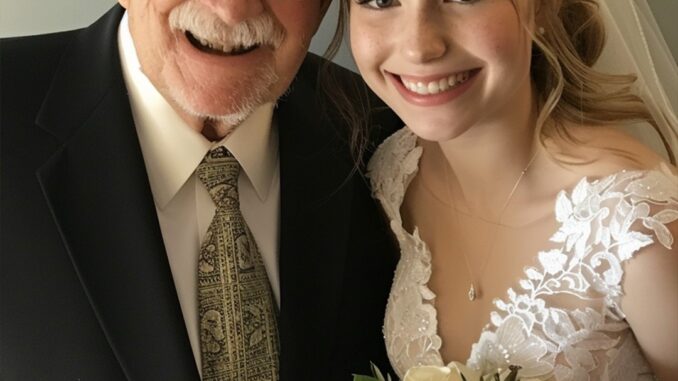
Growing up, my parents never missed a chance to declare that our family was destined for greatness—specifically, the kind of greatness that came with an estate as large as a kingdom. “One day,” my father used to say with an air of promise, “we’ll need a map just to find the kitchen.” My mother would simply nod in agreement, then add, “And you’ll marry someone who’ll help us get there, won’t you, Emma?”
When I was a kid, I joked right along with them, even daydreaming about my imaginary castle. But by high school, I realized they weren’t joking at all. Their entire world revolved around climbing social ladders and forging connections with people they believed could help them get ahead. My mother vetted my friends by quizzing them about their parents’ incomes; my father networked instead of watching my performances or paying attention to my achievements.
In college, I fell in love with Liam—a passionate, gentle guy with plans to become a teacher. He was everything my parents would hate; what he lacked in material success, he more than made up for in warmth and kindness. The moment he proposed with his grandmother’s simple ring in the community garden where we’d had our first date, I knew I would choose him over anything else. The diamond wasn’t large, but it held more brilliance in my eyes than any mansion could.
My parents’ reaction was immediate and cold. They forbade me from marrying Liam. If I went through with it, they’d disown me. For the first time, I finally found the strength to look them in the eyes and say, “I’m sorry you feel that way—but I’m marrying him.”
The wedding day was beautiful, though two chairs remained conspicuously empty. My grandfather took my father’s place and walked me down the aisle. He whispered with a fond smile, “You’ve chosen the right kind of wealth, kid. Love over money—always.” In the end, Grandpa’s presence filled the church with more joy than those two empty seats ever could have.
Life wasn’t easy starting out. Liam’s small teacher’s salary and my freelance jobs didn’t stretch very far. We lived in a cramped apartment where the heater was temperamental, and the thumping bass from the neighbor’s stereo was our nightly lullaby. But it was our home, and it overflowed with laughter—especially after our daughter Sophie was born.
Throughout it all, Grandpa was our rock. He’d arrive unannounced with bags of groceries, or spend hours telling Sophie stories about his boyhood adventures. One afternoon I overheard him teaching her the meaning of true riches: “You’re wealthy when people love you for who you are.” Sophie beamed and said, “Like Mommy and Daddy love me?” and Grandpa nodded with pride.
When Grandpa passed away, my world shifted on its axis. At his funeral, I stood at the pulpit to give a eulogy and spotted my parents for the first time in ten years. They approached me after the service, tears shining in their eyes. They begged for a second chance, claimed they had been foolish, and wanted to make amends. At first, relief and hope coursed through me. Maybe they truly regretted the past.
Then Aunt Claire quietly pulled me aside. She explained Grandpa’s will contained a stipulation: if my parents didn’t reconcile with me, they’d forfeit their inheritance, and all their money would go to charity. Their tears, I discovered, weren’t for Grandpa or for me—they were for their dwindling bank account.
I composed myself and returned to the reception, stepping up to the microphone once more. I spoke about Grandpa’s legacy of love, about how true wealth is measured in acts of kindness, generosity, and genuine affection. I glanced pointedly at my parents, understanding now their sudden change of heart.
Later, the family lawyer confirmed Grandpa had left me a separate inheritance, ensuring Sophie’s college education and giving our little family financial security for the first time. My parents, on the other hand, would receive nothing; Grandpa had funneled their portion to educational charities, redirecting their greed into something positive.
That evening, with Sophie nestled between Liam and me on our worn-but-cozy couch, I felt a profound sense of peace. Yes, the pain of my parents’ betrayal lingered, but it was overshadowed by the contentment of being with the people I loved—and who loved me in return.
“Mom, tell me another story about Great-Grandpa,” Sophie asked, snuggling closer.
Smiling, I began, “He was the one who taught me what real wealth looks like…”
There on that couch, in our simple living room, I couldn’t have felt richer. After all, I had the only treasures that truly matter: love, laughter, and a family held together by compassion, not money.
Leave a Reply